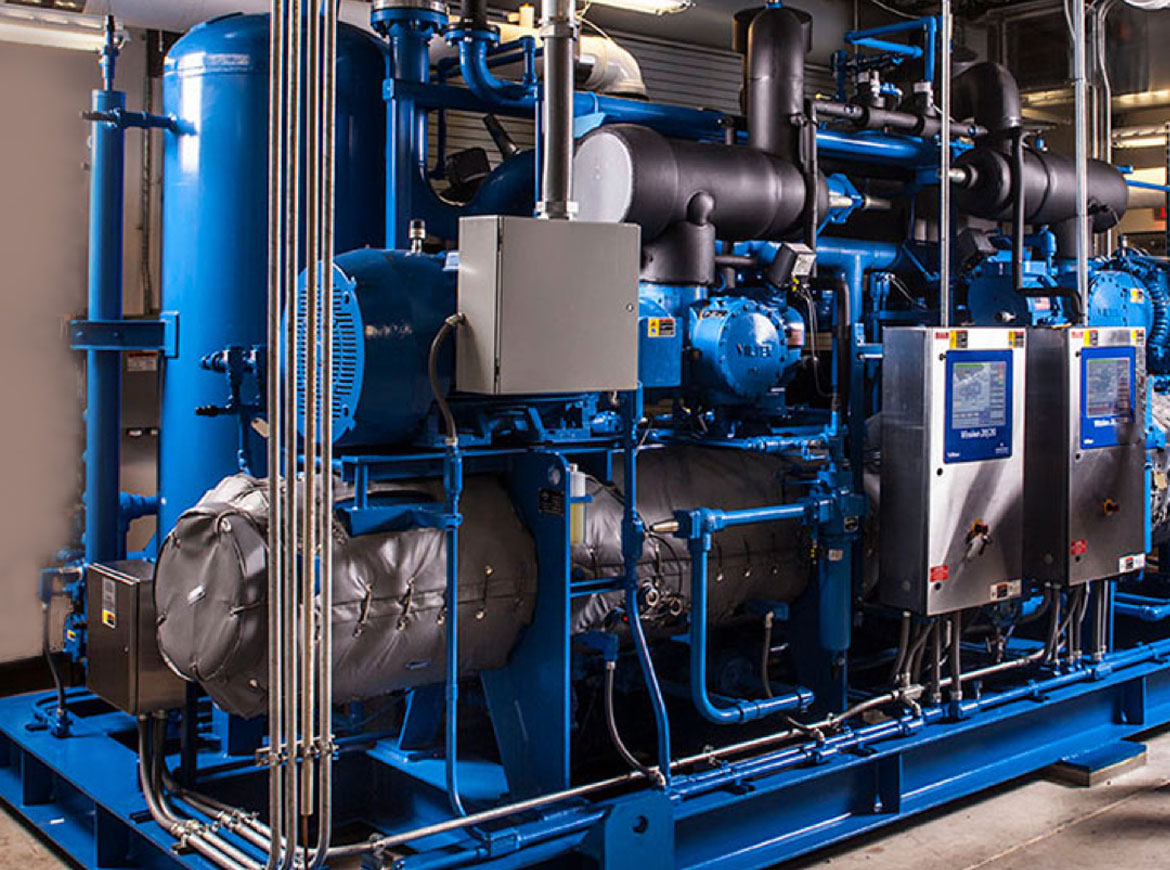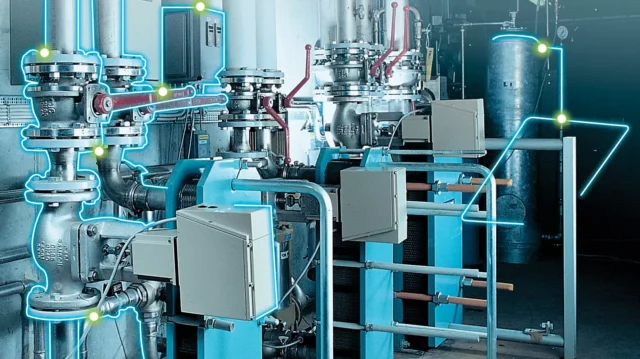In today’s fast-paced commercial and industrial sectors, refrigeration plays a crucial role in preserving perishable goods and maintaining optimum conditions for various processes. Traditional refrigeration systems have been the go-to choice for many years, but modular refrigeration systems have emerged as a highly advantageous alternative. In this article, we will explore the numerous benefits that modular refrigeration systems offer for commercial and industrial applications.
What are Modular Refrigeration Systems?

Modular refrigeration systems are advanced cooling solutions designed with flexibility and scalability in mind. Unlike traditional systems, which are built as a single unit, modular systems consist of independent modules that can be combined or modified according to specific needs. Each module contains all the necessary components, including compressors, condensers, evaporators, and controls, allowing for a customized and adaptable refrigeration setup.
Enhanced Energy Efficiency

One of the key advantages of modular refrigeration systems is their superior energy efficiency. With traditional systems, energy consumption remains constant regardless of the actual cooling demands. In contrast, modular systems enable precise temperature control and efficient cooling by allowing individual modules to operate independently based on the required capacity. This on-demand functionality ensures optimal energy usage, resulting in reduced electricity bills and a smaller carbon footprint.
Flexibility and Scalability
Modular refrigeration systems offer unmatched flexibility and scalability compared to their traditional counterparts. With the ability to add or remove modules as needed, these systems can easily adapt to changing operational requirements. Whether it’s expanding storage capacity, accommodating increased cooling demands, or reconfiguring the layout, modular systems provide a cost-effective solution that saves both time and money. The modular design also facilitates easier maintenance and repairs since modules can be isolated without disrupting the entire system.
Redundancy and Reliability
When it comes to commercial and industrial applications, system downtime can lead to significant financial losses and disruption of critical operations. Modular refrigeration systems address this concern by incorporating redundancy into their design. Each module operates independently, ensuring that a malfunction in one module does not affect the entire system. This redundancy improves reliability, minimizes the risk of complete system failure, and allows for uninterrupted cooling performance. Furthermore, in case of maintenance or repair, the unaffected modules can continue to function, reducing operational disruptions.
Cost Savings

Modular refrigeration systems offer long-term cost savings for commercial and industrial businesses. Their energy efficiency results in reduced utility bills, and the ability to scale the system as needed eliminates the need for costly overhauls or expansions. Furthermore, the modular design simplifies installation, as modules can be pre-fabricated and easily assembled on-site. This streamlined process saves both time and labour costs, making modular systems a financially smart choice for businesses.
Space Optimization
Commercial and industrial facilities often face space constraints, making efficient space utilization a priority. Modular refrigeration systems excel in this aspect, as they can be customized to fit available spaces. The compact size of individual modules allows for installation in tight areas or on upper floors, eliminating the need for extensive construction or structural modifications. Moreover, the modular design enables vertical stacking, maximizing the use of vertical space while maintaining excellent cooling performance.
Efficient space utilization is a top priority for commercial and industrial facilities, especially in kitchens where space constraints are common. In this regard, modular refrigeration systems prove to be highly effective. These systems can be customized to fit the available kitchen spaces, offering a tailored solution for optimal space utilization. With their compact size, individual modules can be easily installed in tight areas or even on upper floors, eliminating the requirement for extensive construction or structural modifications. Additionally, the modular design allows for vertical stacking, effectively maximizing the use of vertical space while ensuring exceptional cooling performance.
Remote Monitoring and Control

In the era of smart technology, modular refrigeration systems offer advanced remote monitoring and control capabilities. Equipped with intelligent sensors and connectivity features, these systems enable real-time monitoring of temperature, humidity, and other vital parameters. This remote accessibility allows for proactive maintenance, timely troubleshooting, and swift response to any anomalies, ensuring the system operates at peak performance. Additionally, remote monitoring minimizes the need for on-site visits, saving both time and resources.
Environmental Friendliness
Sustainability and environmental consciousness have become paramount in modern business practices. Modular refrigeration systems contribute to this cause by incorporating eco-friendly features. Their energy-efficient operation reduces greenhouse gas emissions and lowers the overall carbon footprint. Additionally, these systems employ environmentally friendly refrigerants, such as hydrofluorocarbon (HFC)-free options, further mitigating the environmental impact. By choosing modular refrigeration systems, businesses can align with green initiatives while maintaining optimal cooling conditions.
Versatile Applications
Modular refrigeration systems find application across various commercial and industrial sectors. From supermarkets, restaurants, and food processing plants to pharmaceutical facilities, warehouses, and research laboratories, these systems cater to diverse cooling requirements. Their adaptability allows businesses in different industries to customize the system according to their specific needs, ensuring efficient and reliable refrigeration for their products and processes.
Conclusion
In conclusion, modular refrigeration systems offer a multitude of advantages for commercial and industrial applications. Their energy efficiency, flexibility, scalability, reliability, cost savings, space optimization, remote monitoring capabilities, environmental friendliness, and versatile applications make them an ideal choice for businesses seeking top-tier refrigeration solutions. By investing in modular systems, companies can optimize their cooling processes, enhance operational efficiency, reduce costs, and contribute to a sustainable future. Stay ahead of the competition and elevate your refrigeration capabilities with the unparalleled benefits of modular refrigeration systems.




